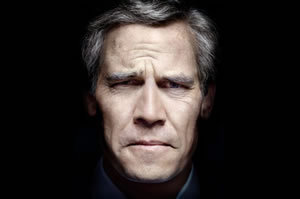 Two films on release show how brilliantly and how badly film can capture recent history. In Obama week, Oliver Stone’s W ought to have been the ideal Friday night flick, and, being a fan of his magnificently paranoid series of US political movies, from Salvador via JFK to Nixon, I had high hopes. But his account of George W Bush’s rise to the presidency and decision to go to war in Iraq is thin fare – not least because David Hare’s play Stuff Happens has already covered this ground with much more authority.
Two films on release show how brilliantly and how badly film can capture recent history. In Obama week, Oliver Stone’s W ought to have been the ideal Friday night flick, and, being a fan of his magnificently paranoid series of US political movies, from Salvador via JFK to Nixon, I had high hopes. But his account of George W Bush’s rise to the presidency and decision to go to war in Iraq is thin fare – not least because David Hare’s play Stuff Happens has already covered this ground with much more authority.
Stone takes a clunkingly Oedipal approach to the whole business: Bush Sr or ‘Poppy’ is the domineering father whom Junior can never truly please. Even Dubya’s embrace of born-again Christianity is presented as a transference of affection from one father to another. All this cod psychology is fine in as far as it goes, but it does nothing to capture the geopolitical tension of 2002-03 or the sense of history spinning out of control that characterised the months that followed the fall of Saddam. Richard Dreyfuss’s wonderfully sinister turn as Cheney is some consolation.
In contrast, Steve McQueen’s Hunger is one of the must-see movies of 2008: spartan, unremittingly rigorous, occasionally unwatchable in its no-holds-barred depiction of the IRA dirty protests and hunger strikes of 1981. Eschewing linear narrative and opting instead for a series of interwoven character vignettes, concluding with a lengthy account of Bobby Sands’s decision to starve himself to death, this is supreme film-making. I do not agree with those who say that it romanticises the Hunger Strikers and frankly I am confident enough of my own views of that horrific propaganda stunt not to be troubled by the director’s views one way or the other. The long scene in which Sands argues about his impending suicide with priest who is also a Republican sympathiser is a dazzling two-hander and worth the price of admission alone.






Comments